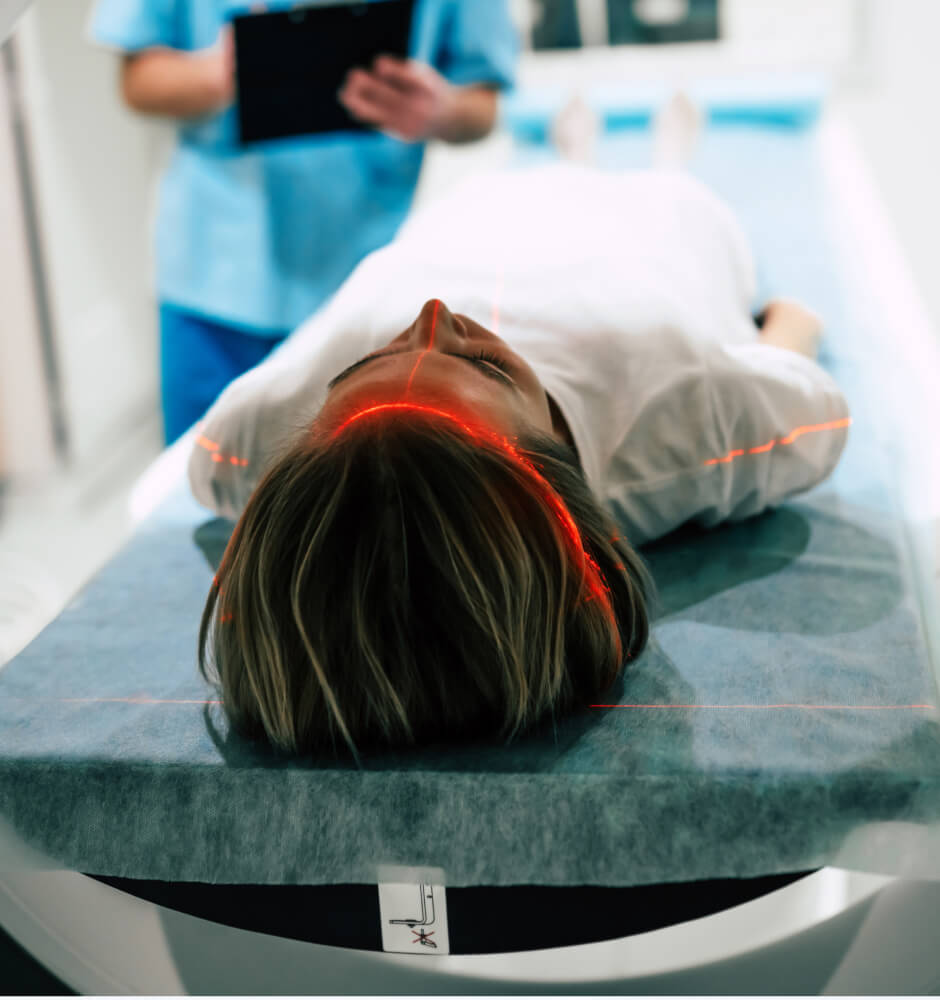Table of Contents
Thirty-one million Americans report suffering from back pain. Many of us try to minimize persistent symptoms as simply minor bouts of aches and pains that a single visit to the chiropractor can resolve. However, lower back pain is actually the leading cause of spine conditions and disabilities in the world. Ignoring the early signs of lumbar backache can cause severe spinal issues, some of which are irreversible.
Can a Minor Backache Cause Major Spinal Issues?
More often than not, back pain is linked to conditions such as reduced ligament or muscle tenacity. Repetitive enforcement of pressure on the lumbar spine, or snubbing the symptoms of lumbar affliction, can often lead to a variety of issues. Some common ailments can include:
- Spinal ligament sprain
- Osteoporosis
- Ruptured discs
- Spinal irregularities
What Can a Lumbar Spine MRI Diagnose or Detect?
Your physician, chiropractor, or general healthcare provider will recommend a spine MRI to detect the critical source of your back pain or discomfort. An MRI (Magnetic Resonance Imaging) scan is an advanced, noninvasive diagnostic tool and imaging technique.
The functionality of an MRI system involves the use of a magnetic field and radio waves for the production of detailed anatomical images. A back MRI or spine MRI will allow your healthcare provider to evaluate the lumbar region (lower spine), as well as the tissue surrounding the area. The procedure is necessary for diagnosing the initial symptoms and determining the cause of your pain or condition.
What Parts of the Spinal Region Does an MRI Scan Display?
Our lumbosacral spine is made of multiple bones, blood vessels, and tendons. The area is comprised of the L1, L2, L3, L4, and L5 vertebral bones, large blood vessels, cartilage, ligaments, tendons, nerves, the coccyx, and sacrum.
An MRI scan produces detailed images of these parts of our lumbosacral spine necessary for accurate findings used to diagnose numerous conditions.
Why is Undergoing a Lumbar Spine MRI Scan Important?
Patients in pain may require a spine MRI or lower back MRI for myriad reasons. Some of these can include:
- Spinal injuries
- Lower backache
- Lower spinal injury
- Spinal congenital disabilities
- Multiple sclerosis
- Constant back pain
- Spinal cancer
- Bladder conditions
- Numbness in the legs
Lumbar Spine MRI: Must-Know Details for Patients
There Are Two Types Of Lumbar Spine MRIs:
- Lumbar spine MRI with contrast
- Lumbar spine MRI without contrast
An MRI scan with contrast involves the use of a special dye. The dye is injected intravenously, either via the arm or hand, before the procedure. The dye (or contrast) allows the radiologist to view specific areas with a higher level of clarity.
The contrast also aids in the identification of moving fluids within the bloodstream.
An MRI without contrast causes the appearance of our arteries and veins to display throughout the resonated image as “flow voids” or, in layman’s terms, “plain black.”
How Long Does a Spine MRI Scan Procedure Typically Last?
An MRI lumbar spine procedure can last anywhere between 30 and 60 minutes, depending on the gravity of the spine issue.
Spine MRI Scan: Before The Procedure
There are a few pre-procedure steps that a patient will need to take before undergoing a lower back MRI or spine MRI. One step is to complete the preliminary questionnaire that the staff member from your chosen diagnostic center will provide. The short form will include your personal information, such as name, contact number, etc., along with your health history.
You will be given a robe or hospital gown to change into, and will be asked to remove any metal elements or accessories from your body. In the case of implemented metal components, such as aneurysm clips, heart valves, and similar medical parts, you need to inform the radiologist before preparing for the MRI scan.
We also advise that you alert the radiologist if you are pregnant, claustrophobic, or suffering from anxiety. For patients with claustrophobia or anxiety disorders, a sedative may be administered to help with relaxation.














